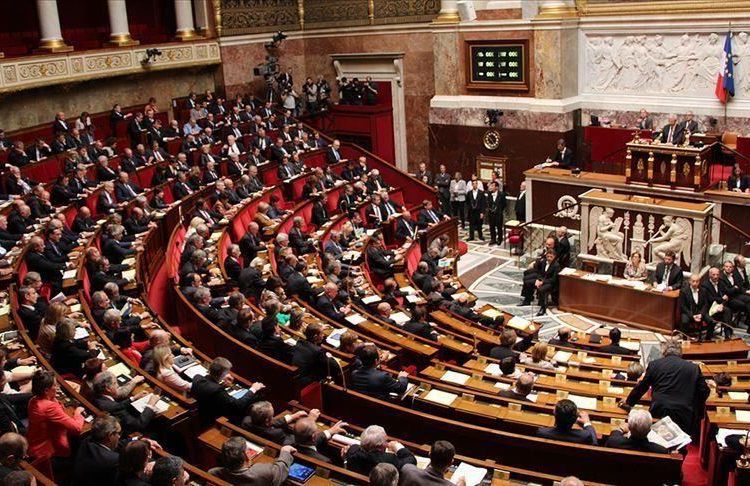The French parliamentary debate over an anti-separatism law will be over this week.
Proposed by President Emmanuel Macron last October, the draft law targeting what he calls “separatists” who undermine national values.
As soon as the bill was unveiled, many said it against Muslims in France, which is home to the largest Muslim minority in Europe, estimated at 5 million.
Macron defended the bill on many occasions saying it would protect the Muslim community from foreign influence.
“Islam is a religion which is experiencing a crisis today all over the world”, he said on October 2.
He spoke of the need to “free Islam in France from foreign influences”.
His government reassures Muslim community that the anti-separatism legislation does not intend to stigmatise them, but targets an extremist minority.
Prime Minister Jean Castex said the law, ‘Supporting Republican Principles’ is not against religions. Neither the word ‘Islam’ nor ‘Muslim’ occurs in the 50-article bill, which provides for better oversight of mosques, associations, public services and schools, Castex said.
The law is long-term and would apply to any political ideology that threatens French values, Castex explained in an interview with the French newspaper Le Monde.
Immediately after the legislation was announced, the government took unprecedented action in December to combat extremism, targeting 76 mosques, of which 16 of them in Paris were suspected of preaching separatist values.
Interior Minister Gerald Darmanin said this is a fraction of the 2,600 mosques suspected of peddling radical ideologies. Darmanin, whose grandfather was a Muslim immigrant from Algeria, added, “We are far from a situation of widespread radicalisation.”
The draft law came in response to the recent attacks in France by extremists, regardless of the fact that they were carried out by outsiders.
The law includes 1,700 proposed amendments formulated in consultation with moderate French Muslim leaders.
The bill demands that children aged three must be enrolled at a regular school in order to protect them from indoctrination. According to French media, 50,000 children are home schooled, but it is not known how many are indoctrinated.
Associations that receive state funds should sign a contract of Republican commitment, pledging that they honour the values of the French Republic.
Muslim places of worship must declare receipt of funding exceding €10,000 ($12,100).
Doctors will be prohibited from issuing virginity certificates, a prerequisite often asked of women prior to a forced marriage, otherwise they risk a hefty fine and a jail term.
The law will crack down on online hate speech. An individual who discloses information about a person’s private life, their family or profession, and such disclosures put that person’s life in danger, will be jailed for three years and fined a sum up to €45,000.
Critics of the bill, however, suggest that it is politically motivated by Macron ahead of the country’s 2022 presidential elections as he aims to win over the far-right.
Far-left leader, Jean-Luc Melenchon, condemned the bill, saying it “stigmatises Muslims”.






Discussion about this post